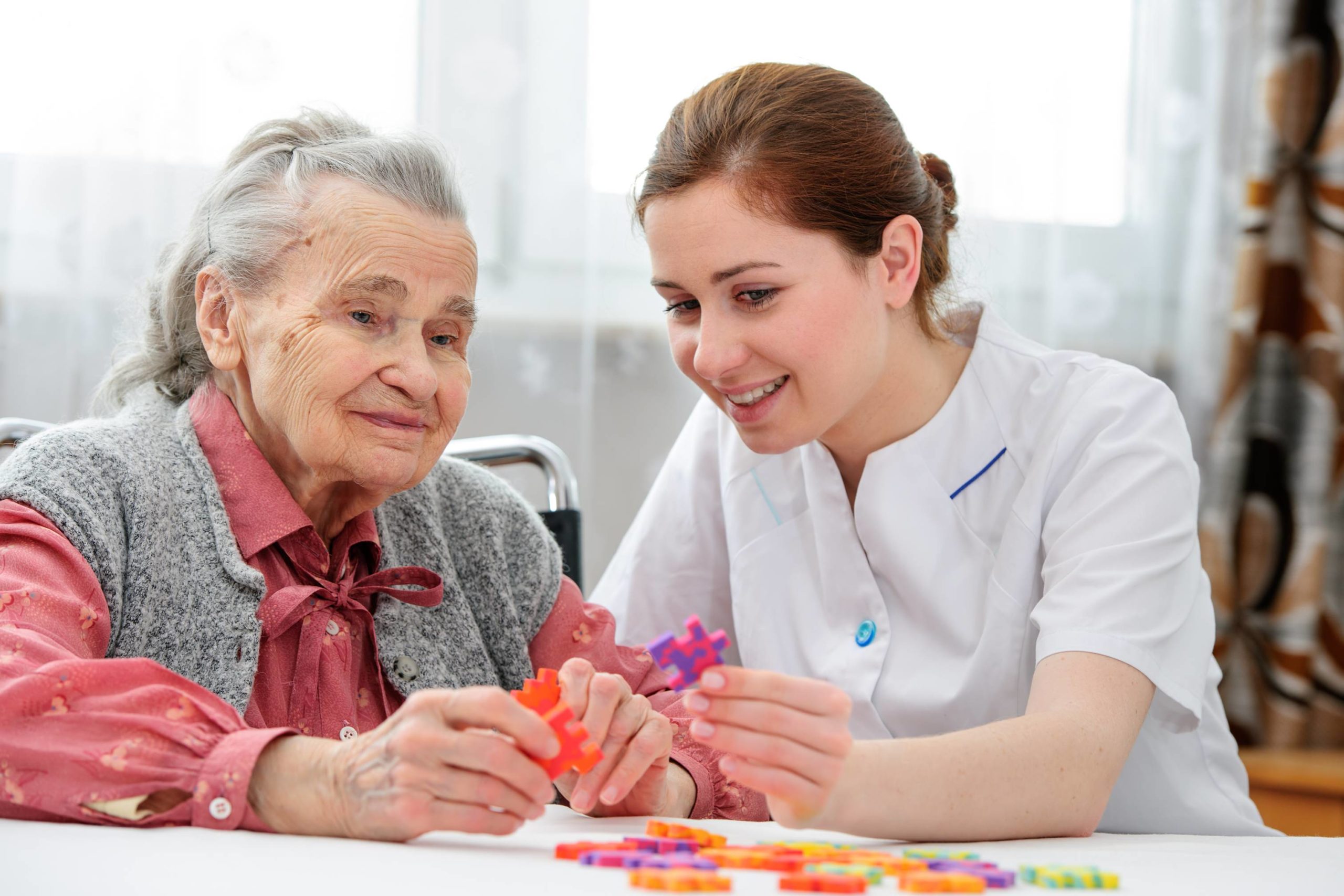What Makes a Charlotte Care Home the Ideal Place for Compassionate Care
What Makes a Charlotte Care Home the Ideal Place for Compassionate Care
Blog Article
Producing a Helpful Setting With Professional Dementia Care
Developing a helpful setting for individuals with mental deterioration requires a multifaceted technique that incorporates skilled care approaches tailored to their one-of-a-kind requirements. The role of caregivers in this dynamic can not be forgotten, as their wellness is similarly essential to providing thoughtful treatment.
Understanding Mental Deterioration Needs
When addressing the complexities of dementia care, comprehending the one-of-a-kind requirements of individuals dealing with this problem is paramount - Memory Care Charlotte. Dementia is a complex cognitive problem that impacts memory, thinking, and daily functioning. Therefore, caregivers and medical care professionals should acknowledge that each person's experience with mental deterioration differs considerably, influenced by factors such as the kind of mental deterioration, stage of the illness, and individual history.
Reliable mental deterioration care demands a person-centered method that appreciates the individual's worths, routines, and choices. This consists of cultivating open communication, which can help caretakers recognize the particular requirements and desires of those they support. Furthermore, understanding behavioral adjustments, such as agitation or withdrawal, is crucial, as these behaviors commonly signal unmet requirements or discomfort.
In addition, caretakers ought to be outfitted with knowledge regarding the psychological and psychological facets of dementia. People may experience sensations of unhappiness, irritation, or confusion, requiring compassionate responses that confirm their experiences. By cultivating an atmosphere of empathy and understanding, caregivers can improve the quality of life for people with mental deterioration, guaranteeing they really feel valued and sustained throughout their trip.
Creating Safe Spaces
Developing safe rooms for people with mental deterioration is necessary, as a well-designed atmosphere can dramatically enhance their complacency and independence. The physical design of an area ought to prioritize security while promoting autonomy. This includes lessening obstacles, guaranteeing clear pathways, and utilizing non-slip flooring to decrease the risk of falls.
Integrating acquainted and comforting components, such as individual photographs and treasured personal belongings, can aid ease anxiety and create a sense of belonging. In addition, using proper lights is crucial; all-natural light is more suitable, yet soft, flexible lighting can assist protect against confusion and disorientation throughout various times of day.

Interaction Techniques
Efficient interaction methods are crucial for fostering significant interactions with people living with dementia. Given the cognitive obstacles related to this condition, caregivers need to use strategies that improve understanding and reduce aggravation.
One vital strategy is to maintain eye get in touch with and make use of a calm, mild intonation. This approach aids to establish trust and signals that the caregiver is completely involved. Furthermore, using straightforward, clear language and staying clear of intricate sentences can promote better comprehension. It is also valuable to ask yes-or-no inquiries, as these are much easier for people with mental deterioration to process and answer.
Non-verbal interaction plays a considerable role also; gestures, faces, and touch can convey empathy and link. Caretakers ought to be in harmony with the person's non-verbal cues to gauge their emotion and adjust their technique appropriately.
People with mental deterioration might call for additional time to procedure information and develop their ideas. By carrying out these interaction techniques, caretakers can produce an encouraging ambience that enhances the well-being of individuals living with dementia.
Engaging Activities
Engaging activities play an essential function in boosting the lifestyle for individuals living with mental deterioration, enhancing the communication strategies formerly reviewed. These activities not only offer cognitive excitement but additionally cultivate a feeling of purpose and belonging. Tailoring tasks to straighten with the individual's capacities, preferences, and passions is necessary for taking full advantage of engagement.
Imaginative searches, such as art and music treatment, can stimulate memories and emotions, facilitating links with caretakers and peers. Straightforward tasks like horticulture or food preparation enable for significant involvement, motivating independence and self-confidence. Physical tasks, including strolling or gentle exercises, promote general well-being and can minimize anxiety and anxiety.

Support Resources for Caregivers
Caring for a private with dementia can be an overwhelming experience, making accessibility to sustain sources essential for caretakers' well-being. Different sources are offered to aid caretakers in handling the sensible and psychological obstacles connected with mental deterioration treatment.
Regional assistance groups provide an important system for caregivers to share experiences, receive inspiration, and gain understandings from others dealing with similar obstacles. Lots of organizations, such as the Alzheimer's Organization, provide academic programs and workshops that boost caretakers' skills and expertise about mental deterioration.
In addition, break care solutions can be important, permitting caretakers to take needed breaks without compromising the treatment given to their liked ones. This kind of assistance can stop caregiver fatigue, promoting general psychological and physical health.
On the internet resources, including online forums Charlotte Care Home and web sites committed to dementia treatment, provide caretakers the adaptability of accessing info and community support at their benefit. Mental health experts specializing in caretaker assistance can provide tailored therapy and coping techniques.
Including these support sources into everyday routines guarantees that caretakers not only fulfill their duties successfully however likewise prioritize their very own wellness, promoting a much healthier caregiving atmosphere.
Final Thought
In final thought, establishing a helpful setting for individuals with dementia necessitates a multifaceted approach that addresses their one-of-a-kind demands. With each other, these elements add to an alternative framework that promotes security, convenience, and psychological health and wellness for both individuals with mental deterioration and their caretakers.
Developing a helpful atmosphere for people with mental deterioration demands a complex strategy that integrates expert care methods tailored to their unique demands. Charlotte Care Home. Caregivers and health care professionals must acknowledge that each individual's experience with dementia varies significantly, affected by variables such as the type of mental deterioration, stage of the condition, and personal history
By growing an environment of empathy and understanding, caregivers can improve the quality of life for individuals with dementia, guaranteeing they really feel valued and sustained throughout their trip.
By implementing these communication methods, caretakers can develop a helpful atmosphere that boosts the health of individuals living with mental deterioration.
With each other, these components add to an all natural framework that promotes security, convenience, and psychological wellness for both individuals with mental deterioration and their caretakers.
Report this page